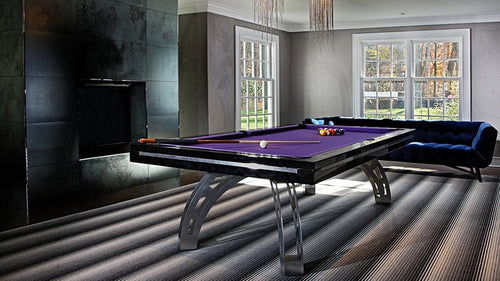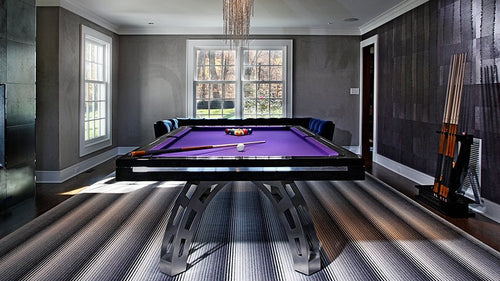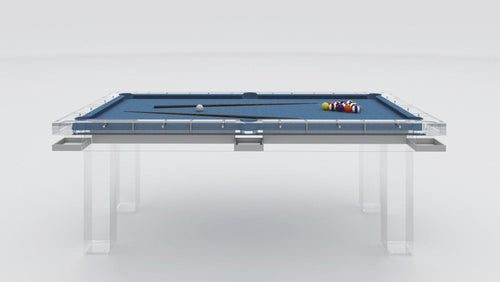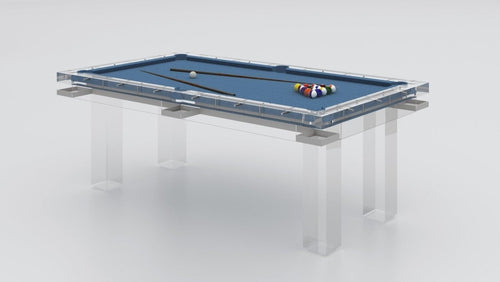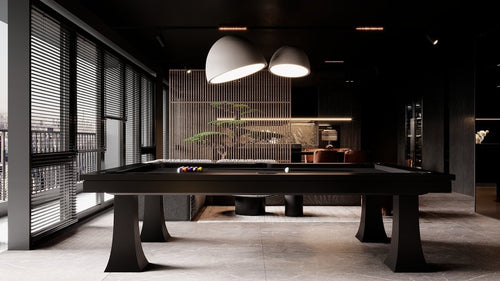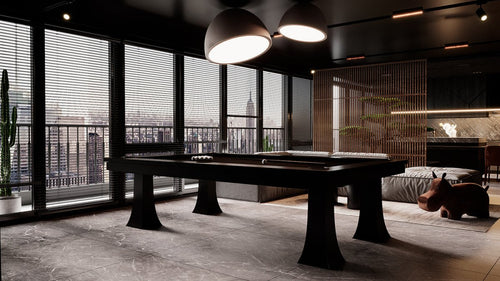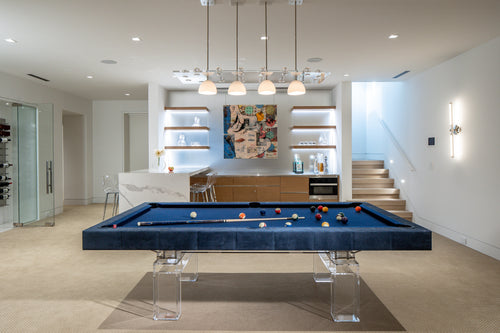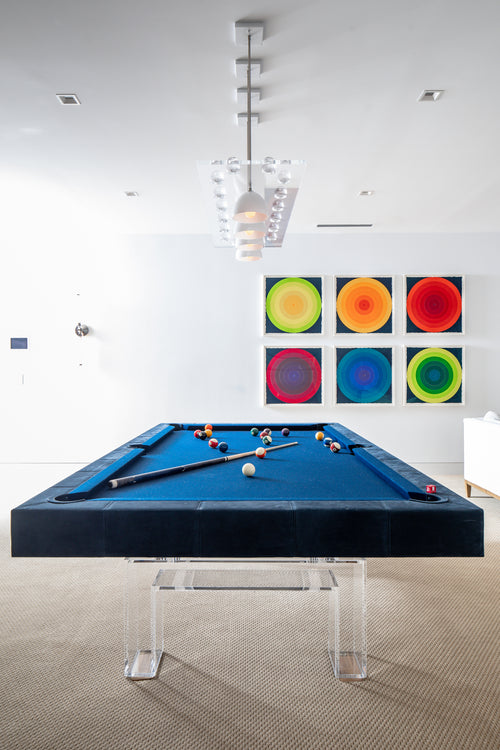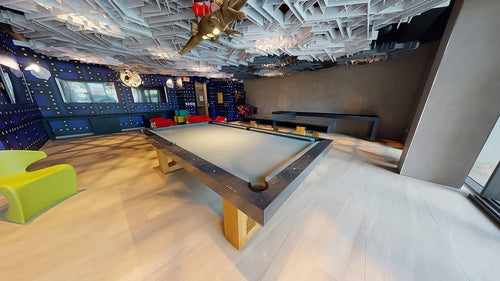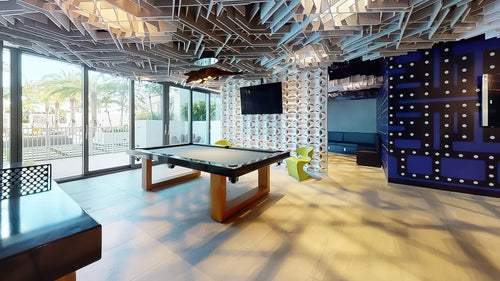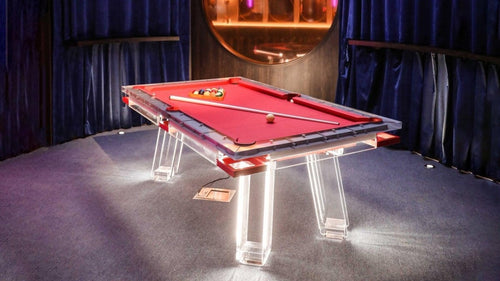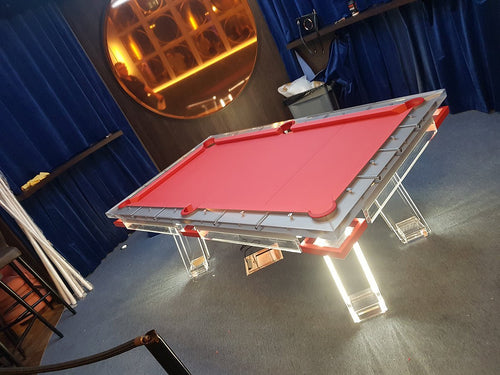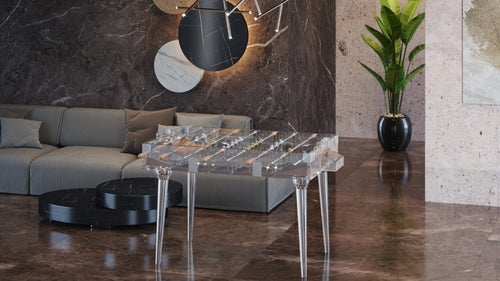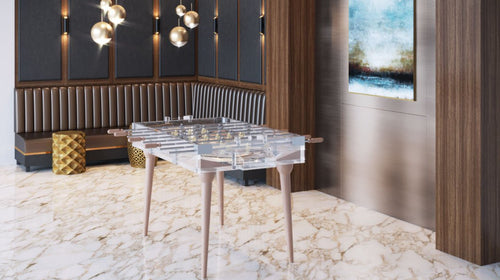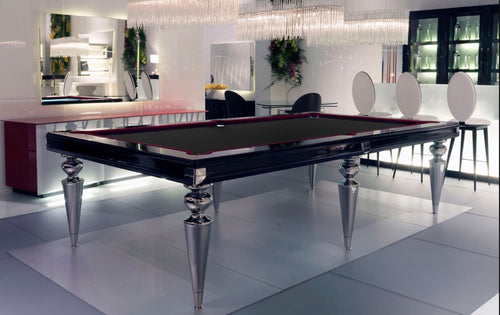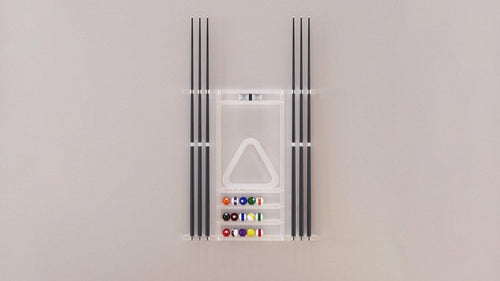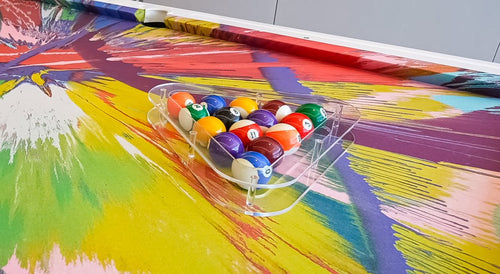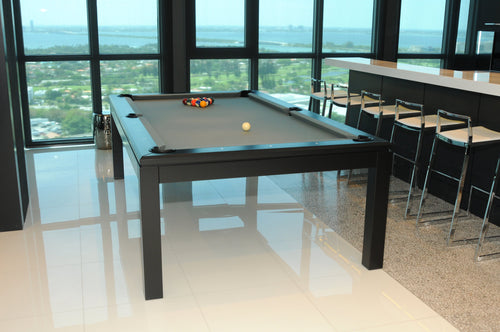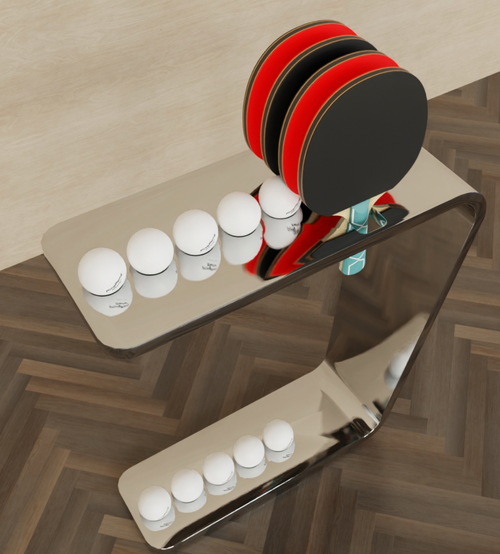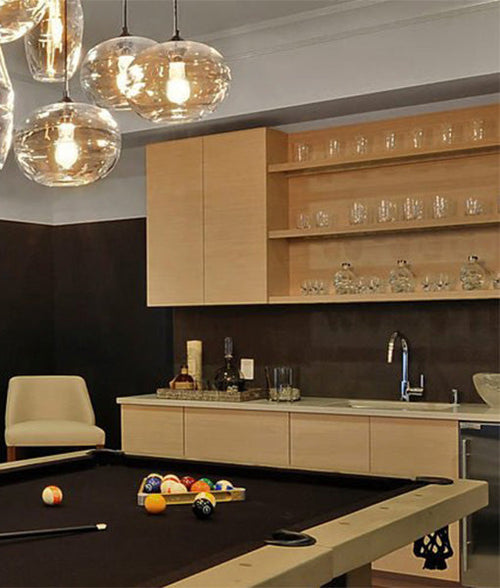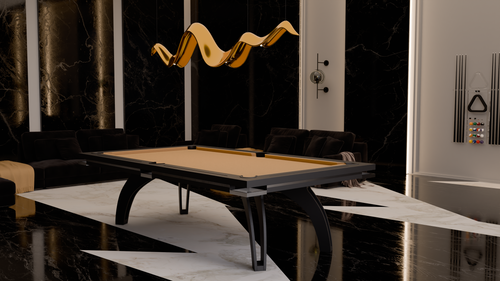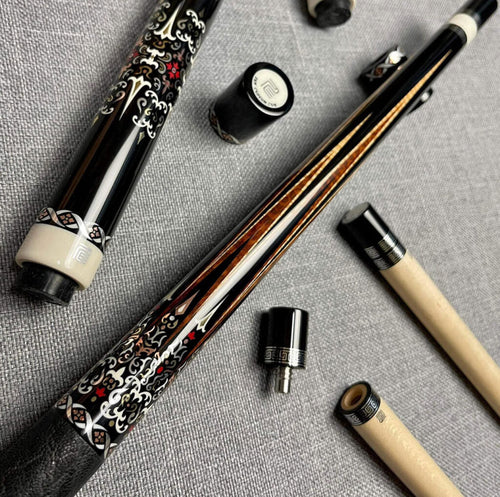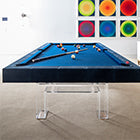Enjoy our modern designs
Estimated Read Time: 6 mins | Updated:
Pool is a timeless game of precision and strategy — and yes, it’s also the perfect solo hobby if you don’t always have opponents (or friends) on standby. This concise guide will get you set up for effective solo practice: equipment, rules, drills, game variations, and practical tips so every session moves you forward.
Essential Equipment for Solo Pool

You don’t need anything exotic. Get these basics right:
- Pool table: 7', 8' or 9' — make sure it’s level and the felt is in good condition. If you don’t own one, book time at a local hall.
- Cue stick: Weight and balance that feel natural to your stroke—test before you buy.
- Standard ball set: 16 balls (cue + 1–15). Quality balls roll more consistently.
- Racks & accessories: Triangle, chalk, bridge, towel for cleaning, and a cue rack if possible.
- Optional: Training aids (laser sights, aiming systems) and a practice cue for repetitive drills.
Understanding the Basics: Rules & Techniques
Before structured practice, lock in fundamentals: stance, grip, and basic shot types.
- Stance & grip: Stable lower body, smooth bridge, relaxed but firm grip—consistency beats force.
- Stroke: Straight, controlled follow-through; avoid wristy flicks unless intentionally using spin.
- Basic shots: Straight shots, banks, combos, and controlled draws and follow shots.
- Break: Practice a repeatable break that gives you position or leaves playable balls.
Solo Pool Game Variations
Mix these into practice to target specific skills and keep sessions interesting.
Straight Pool (14.1 Continuous)
Goal: Pocket as many balls as possible. When 14 are gone, re-rack and keep going. Focus: consistency and long runs.
Bowlliards
Goal: Ten-frame scoring like bowling. Rack 10 balls per frame and track strikes/spares. Focus: under-pressure execution and break recovery.
3-Ball Challenge
Goal: Pocket three balls in the fewest strokes. Start with ball-in-hand. Focus: planning and minimizing stroke count.
Rotation & One-Pocket
Rotation forces you to play by numbers; One-Pocket forces extreme precision and positional control—both sharpen strategic thinking.
Speed Pool & Ghost Pool
Speed Pool builds decision speed; Ghost Pool is a mental-run-the-table challenge—both improve pressure handling.
Advanced Solo Drills to Sharpen Your Game
Drills are where progress happens. Keep reps focused and measurable.
Cue Ball Control Drill
- Place the cue ball at a fixed spot and practice sending it to preset targets after each shot (stop, follow, draw, side follow).
- Do 20 repetitions per spin type and track success rate.
Bank Shot & Angle Work
- Pick a bank angle and repeat it from multiple table positions—note how speed changes the angle.
Combination & Safety Drills
- Set up combos and force yourself to execute the positional cue ball for the next shot.
- Practice safeties that leave the cue ball out of easy reach—create scenarios and solve them.
Benefits of Playing Pool by Yourself
Solo practice gives you structure and control. Key benefits:
- Technical refinement: Reps reinforce stroke mechanics and cue control.
- Strategic thinking: You learn multi-shot planning without the pressure of opponents.
- Confidence: Meeting small goals builds mental toughness for competitive play.
- Stress relief: Focused, deliberate practice is a good way to unwind and reset.
Tips for Effective Solo Pool Practice
- Set clear, measurable goals: e.g., “run 10 balls three times today” or “80% success on draw shots.”
- Keep a practice log: Note drills, reps, and results—measure improvement over weeks.
- Short, focused sessions: 30–60 minutes of deliberate practice beats unfocused hours.
- Use video: Record your stroke to spot technique flaws and track progress.
- Vary intensity: Mix technical drills with game-simulations to maintain competitiveness.
Upgrading Your Equipment for Enhanced Solo Play
- Better felt & cushions: Improves predictability and speed.
- Precision cue: Custom weight/balance can tighten your consistency.
- High-quality balls: Reduce bounce variance and improve feedback.
- Training tools: Laser guides, aiming aids, and marker systems accelerate learning.
Conclusion — A Short Wind-Down Story
After a long day, you head to the table, set a small challenge — three clean runs, ten minutes each. The room is quiet, you chalk once, breathe, and make the first shot. Repetition becomes rhythm. By the third run your stroke feels smoother and your plan two shots ahead is clearer. That ten-minute ritual is not flashy practice; it’s steady improvement and a way to leave the day better than you found it.
Use the drills above, track progress, and keep sessions disciplined but short. Solo practice is not lonely — it’s controlled, measurable work that turns small gains into real skill.



